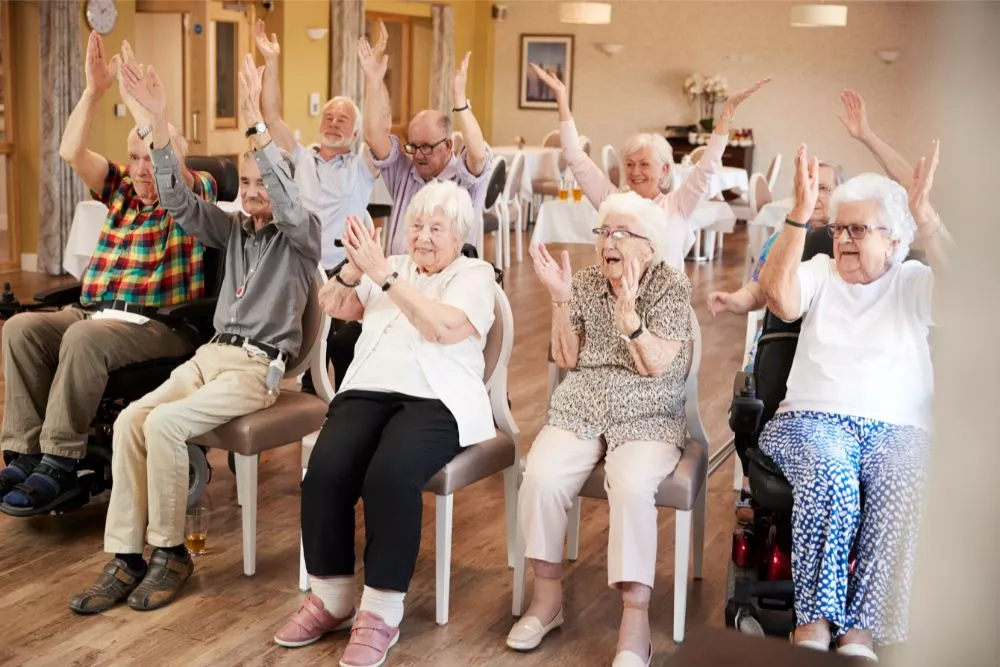The Function of Assisted Staying In Providing Specialized Take Care Of Dementia Sufferers
The provision of specialized care for dementia patients within assisted living centers is significantly recognized as a vital part of efficient dementia monitoring. These atmospheres are developed to address the unique cognitive and psychological difficulties faced by people with dementia, offering customized support that advertises security and well-being.
Recognizing Dementia Treatment Needs
Comprehending the treatment requirements of individuals with mental deterioration is important for providing efficient support and improving their lifestyle. Mental deterioration is a progressive neurological problem that affects cognitive features such as memory, reasoning, and communication. People with dementia commonly require support with day-to-day activities, individualized care strategies, and psychological support.
Efficient mental deterioration care involves identifying the one-of-a-kind challenges dealt with by each person. This consists of understanding the stages of mental deterioration, which can vary from mild cognitive disability to innovative phases requiring extensive aid. Care needs might incorporate assistance in managing daily routines, medicine adherence, and keeping social interactions to stop seclusion.
In addition, sensory excitement and acquainted settings can considerably improve the health of people with mental deterioration. Caretakers must be trained to identify behavioral changes and utilize methods customized to every person's preferences and past experiences. Methods such as validation therapy and reminiscence can assist communicate successfully and promote a feeling of security.
Ultimately, efficiently addressing the treatment demands of people with mental deterioration needs a caring technique, continuous training for caretakers, and a dedication to keeping self-respect and regard throughout the caregiving process.
Benefits of Assisted Living

Assisted living promotes social interaction amongst citizens, cultivating a feeling of community and belonging. Engaging with peers can minimize sensations of seclusion, which are usual in those living with mental deterioration.
On top of that, many assisted living facilities use help with day-to-day tasks, such as medication management, bathing, and meal prep work. This assistance permits residents to maintain their independence while ensuring their health and well-being are prioritized. Ultimately, assisted living functions as an important source, stabilizing treatment and autonomy for individuals with dementia and their families.

Specialized Programs and Tasks
(Dementia Care Charlotte)Acknowledging the special requirements of people with dementia, lots of assisted living centers implement specialized programs and tasks made to boost cognitive feature and advertise general wellness. These programs commonly consist of cognitive excitement activities that engage residents in memory games, problems, and memory treatment, which urges the sharing of individual stories and past experiences.
Furthermore, art and music treatment play considerable roles in cultivating creative thinking and emotional expression (Memory Care). Engaging residents in paint, crafting, or music sessions can give restorative benefits, assisting to decrease anxiousness and enhance state of mind. Physical tasks, such as mild exercises and dancing sessions, are likewise crucial, as they advertise mobility and physical health and wellness while motivating social interaction amongst locals
Organized day-to-day routines are often developed to provide a sense of security and predictability for individuals with mental deterioration. These regimens can include set up meal times, team activities, and customized treatment plans that deal with specific interests and capacities. By creating an improving environment full of customized activities, helped living centers not just enhance the high quality of life for dementia clients yet likewise promote a feeling of area and belonging.
Educated Staff and Assistance
(Dementia Care Charlotte)In aided living facilities, the existence of experienced staff is essential for giving efficient support to people with dementia. These experts have specialized expertise and skills to address the special needs of citizens, ensuring their security, convenience, and wellness. Team member receive training in mental deterioration care, which includes recognizing the progression of the condition, recognizing behavioral adjustments, and utilizing reliable communication techniques.
In addition, trained staff are furnished to apply individualized treatment plans tailored to every homeowner's preferences and capabilities. This customized strategy fosters a sense of freedom and dignity, enabling citizens to take part in meaningful activities that improve their lifestyle. The team additionally play a vital role in checking health and wellness, immediately recognizing any kind of adjustments in problem that might call for clinical focus.
In addition to direct care, qualified staff offer emotional support to locals, assisting to ease sensations of confusion and anxiety that typically go along with dementia. Their caring method creates a nurturing environment where residents really feel valued and recognized - Assisted Living. Inevitably, the proficiency and dedication of trained staff are essential in delivering comprehensive treatment that fulfills the complex needs of people coping with dementia in assisted living settings
Family Members Participation and Resources
Household involvement plays a significant duty in the care of individuals with mental deterioration in assisted living centers. Engaging family participants in the care procedure not just enhances the psychological wellness of the local but additionally promotes a collaborative setting where care strategies can be tailored to individual requirements. Families can give useful insights right into the preferences, background, and behaviors of their enjoyed ones, which can notify caretakers and cause even more individualized care techniques.
Furthermore, aided living facilities usually use resources for households, such as support system and educational workshops. These sources can help households recognize dementia, boost communication methods, and develop coping mechanisms. Involvement in these programs can equip member of the family, furnishing them check my site with the devices required to sustain their enjoyed ones efficiently.
In addition, regular communication in between households and team is vital. This recurring dialogue enables family members to remain informed regarding their liked one's progression and any kind of adjustments in care plans. Eventually, a solid collaboration between households and assisted living centers cultivates a setting of trust and understanding, making sure that people with mental deterioration obtain the specialized treatment they deserve while maintaining their household connections.
Conclusion
To conclude, aided living centers play a vital role in dealing with the distinct requirements of dementia individuals through personalized care and support. By fostering safe settings, advertising social communication, and applying organized regimens, these centers boost the total health of citizens. The participation of skilled personnel and families further enriches the care experience, ensuring that individual choices and backgrounds are appreciated. Eventually, assisted living offers necessary resources that considerably improve the quality of life for those coping with mental deterioration.